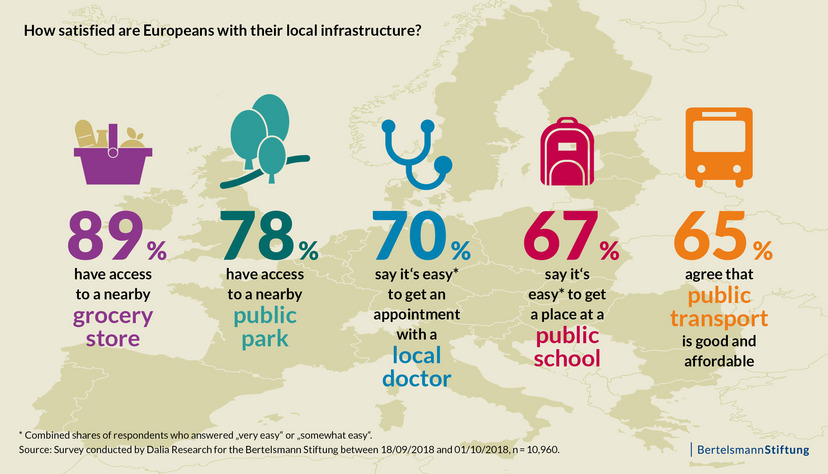Whether we use public transport, make an appointment with a local doctor or unwind in a public park: the goods and services provided by local infrastructure are essential for our daily routines. Whether local infrastructure is good, affordable and accessible thus becomes immediately tangible in people’s daily lives. This is why we dedicated a special section of a recent eupinions survey in order to learn more about what people across Europe think of their local infrastructure and how they feel about their neighbourhood as such. Additionally, we asked how they judge the economic opportunities for young people in their area: the underlying notion was to learn more about the perceived ability of young people to find a job close to their home, which might in turn affect their decision to stay in their area or move away.
According to the results of our poll, a large majority of Europeans (81 percent) think that their neighbourhood is generally a good place to live. Moreover, the results show that Europeans are generally satisfied with their local infrastructure, but their satisfaction levels vary between different tested infrastructure areas. For example, 89 percent of respondents confirm to have access to a nearby supermarket, but less than seven out of ten agree that it is easy to find a place at a nearby public school (67 percent) or that public transport in their area is good and affordable (65 percent). Additionally, the poll shows that Europeans living in rural areas seem to be less satisfied with most tested infrastructure areas than those living in urban areas: such differences are particularly pronounced if respondents are asked whether public transport is good and affordable or if they have access to a public park.
But what stands out most in our survey is the pessimistic judgement of economic opportunities for young people: less than three out of ten Europeans (28 percent) agree that it is easy for young people to find a job in their area. These results are particularly low in Italy (11 percent) and Spain (13 percent), two countries also hit hard by the economic crisis. Given that youth unemployment remains an important issue in several EU countries, the fact that respondents to this survey judge economic opportunities for young people rather pessimistically raises a serious note of concern.








